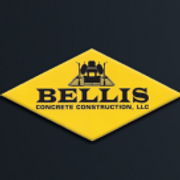5 Different Types of Concrete Cracks

Concrete is a durable material that can be used in foundations, slabs, walls, driveways, and sidewalks. But even the best-poured concrete will suffer wear over time, leading to cracks and fissures in the surface. Keep an eye out for the following types of cracks.
Types of Cracks in Concrete
1. Cracks From Settling
When the ground below the slab begins to settle, cracks may form. Typically, this is an issue when there is space between the ground and the concrete surface. These voids often occur when there is a change and an opening is created, such as tree removal or digging new trenches for utilities. When the soil is not refilled or compacted, the concrete is affected.
2. Cracks From Expansion
 Concrete expands in high heat, and if there’s inflexible material nearby, like brick, the concrete will crack. Many contractors will install expansion joints at separation points and between materials that have low flexibility. These joints are usually made of material that takes expansion and contraction well, like asphalt or rubber, to prevent cracking, but without them, you will see damage.
Concrete expands in high heat, and if there’s inflexible material nearby, like brick, the concrete will crack. Many contractors will install expansion joints at separation points and between materials that have low flexibility. These joints are usually made of material that takes expansion and contraction well, like asphalt or rubber, to prevent cracking, but without them, you will see damage.
3. Cracks From Drying
When concrete dries prematurely, two types of cracks may form. Crazing cracks are typically on the surface and spread out like a spider web. This is the result of the slab losing moisture too quickly. Crusting cracks, on the other hand, occur during stamping when patterns are added to the concrete. When the top dries faster than the bottom, the surface will look crusty. Neither of these causes structural problems.
4. Cracks From Heaving
Heaving cracks occur when the concrete is lifted before setting it back down. This can be from a freeze/thaw cycle or something like a large tree root. You’ll see uneven concrete and large cracks in the slab when this happens.
5. Cracks From Chemicals
Chemicals can affect concrete, which may lead to cracks and other damage. Often these chemicals are part of the process of creating, pouring, and curing concrete. The biggest culprit tends to be alkalies, which often come from cement hydration or groundwater. Typically, a swelling occurs that draws water from the concrete and affects its integrity.
If you need concrete for residential or commercial purposes, Bellis Concrete Construction in Cookeville, TN, has been the leading concrete company in the area for more than 20 years. Whether you need a foundation or a concrete driveway, their expert technicians can help. They even offer stamped concrete for your patio. Call (931) 528-6240 for an appointment or visit their website for more on their residential and commercial services.
About the Business
Have a question? Ask the experts!
Send your question

